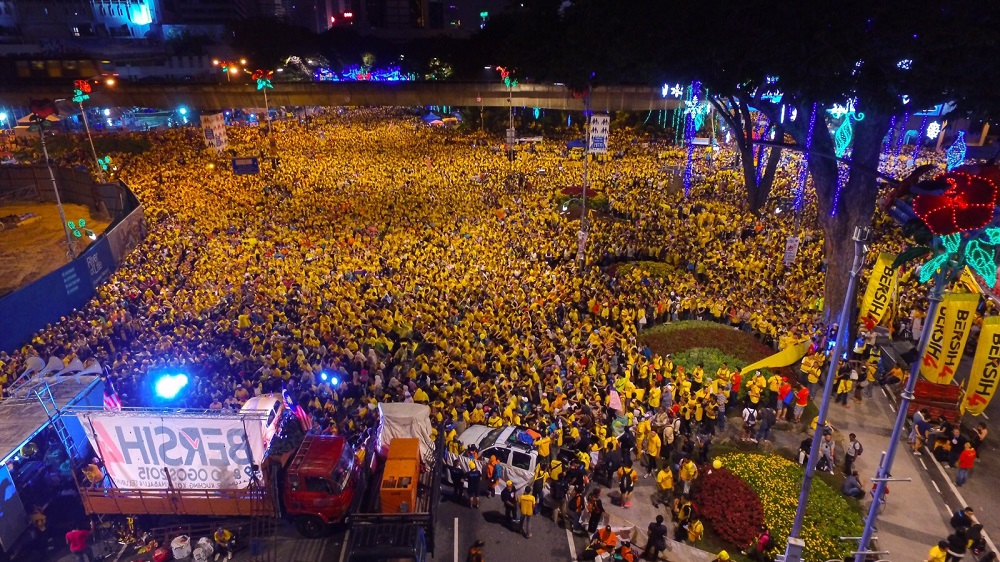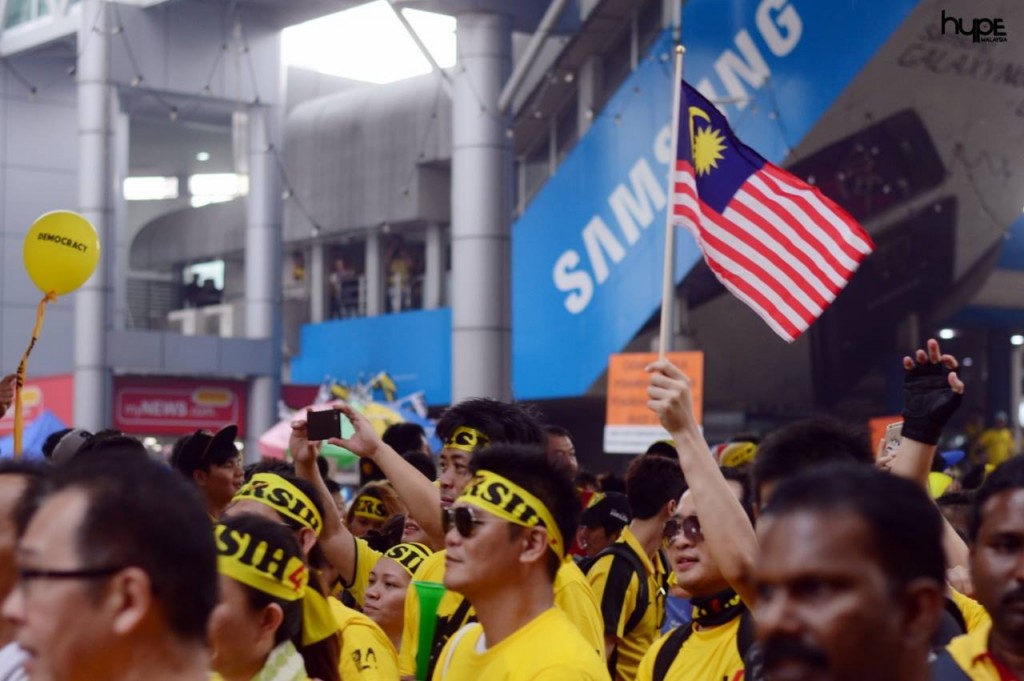Bersih 2.0 has won South Korea’s 2016 Gwangju Prize for Human Rights for its efforts in pushing for electoral reform in Malaysia.
The Gwangju Prize for Human Rights is a prestigious award given by the May 18 Memorial Foundation in South Korea, to recognise “individuals, groups or institutions in Korea and abroad that have contributed in promoting and advancing human rights, democracy and peace through their work.”

The award is also intended to commemorate the spirit of the May 1980 Gwangju Democratization Movement, in which citizens in Gwangju rose up against military rule. The Gwangju Democratization Movement is widely recognised as the starting point of South Korea’s democratisation for human freedom and dignity.
Upon the announcement, the Bersih 2.0 steering committee said it was proud for being acknowledged for its work through the Gwangju award:
“The recognition given to BERSIH 2.0 via this award is the result of the spirit shown by Malaysians who have peacefully demonstrated and fought for free and fair elections in four major rallies. Collectively, Malaysians have shown their patriotism in upholding rights and freedoms enshrined in the federal constitution. BERSIH 2.0 would like to express its appreciation to all NGOs and Malaysians who have been supporting the struggle of the movement. The award is in recognition of the commitment and bravery of fellow Malaysians. Additionally, BERSIH 2.0 would like to thank friends, groups, and institutions from abroad who have been supportive of the struggle.”
Bersih 2.0 was nominated by Indonesian activist Mugiyanto from the International NGO forum on Indonesian Development (INFID) and Malaysian activist Yap Swee Seng. The award ceremony will be held on 18th May 2016 in South Korea and BERSIH 2.0’s representative will be present to receive the award.
Once again, congratulations to all Malaysia. The award is for us all.
The Bersih movement, also known as the Coalition for Clean and Fair Elections is a group of 84 non-governmental organisations whose aspiration is to push for a thorough reform of the electoral process in Malaysia.
On 10th November 2007, Bersih organised the first rally with 10,000 to 40,000 turnout and held a public demonstration at Dataran Merdeka, Kuala Lumpur. Supporters of Bersih were urged to wear yellow T-shirts as a symbol of protest. The rally was often credited for the shift in political landscape in 2008 general election, when the incumbent National Front coalition failed to obtain a two-thirds supermajority for the first time since 1969.
In 2015, the Bersih 4 rallies were carried out on 29th to 30th August in major cities in Malaysia, namely Kuala Lumpur, Kota Kinabalu, and Kuching. There were subsequent rallies in over 70 cities around the world in support of the main rallies in Malaysia.
Sources: MMO, Bersih, Gwangju Prize for Human Rights, FMT, Bersih / Featured image via aliran.com.
Follow us on Instagram, Facebook or Telegram for more updates and breaking news.



